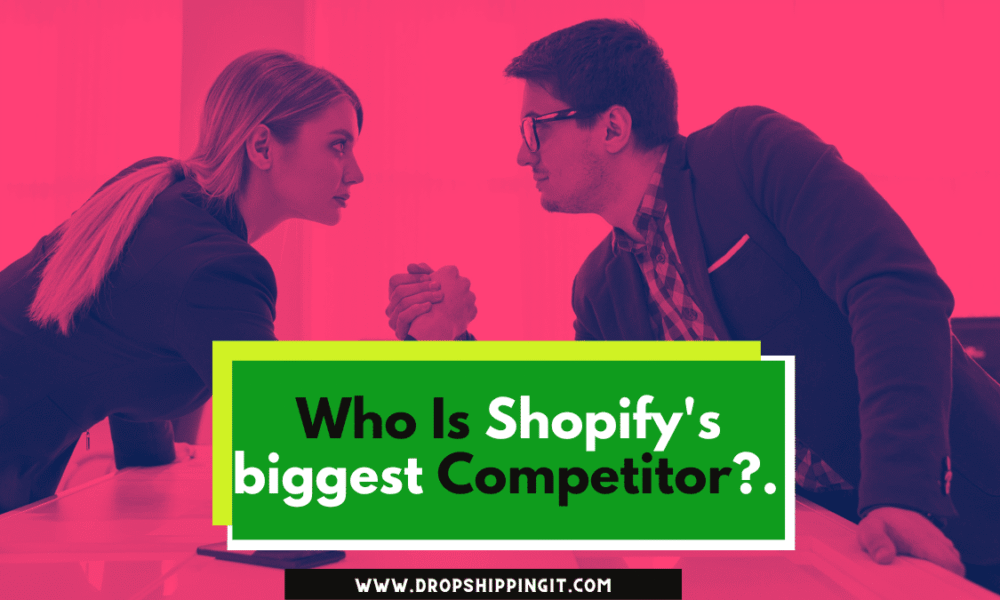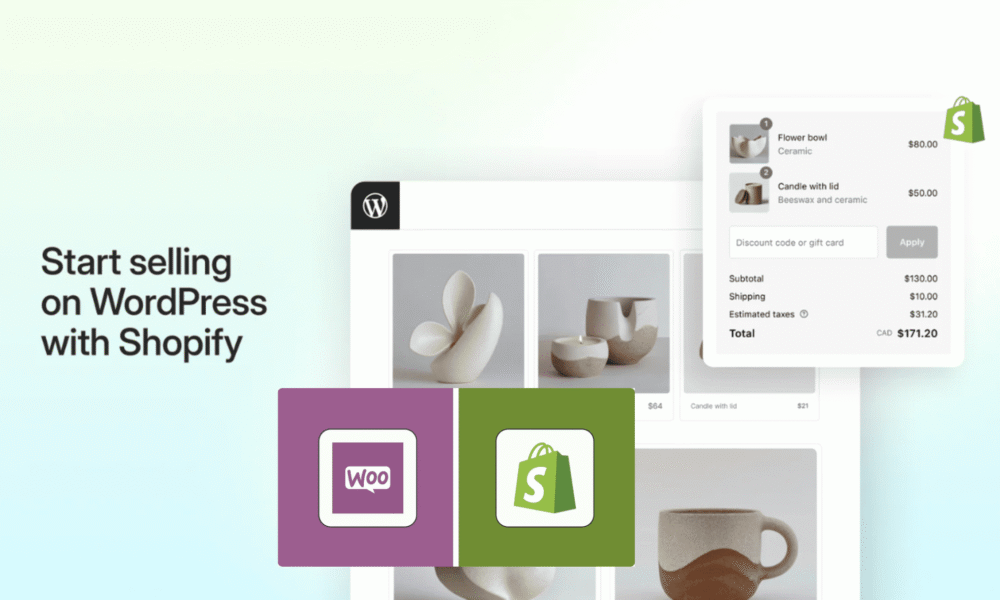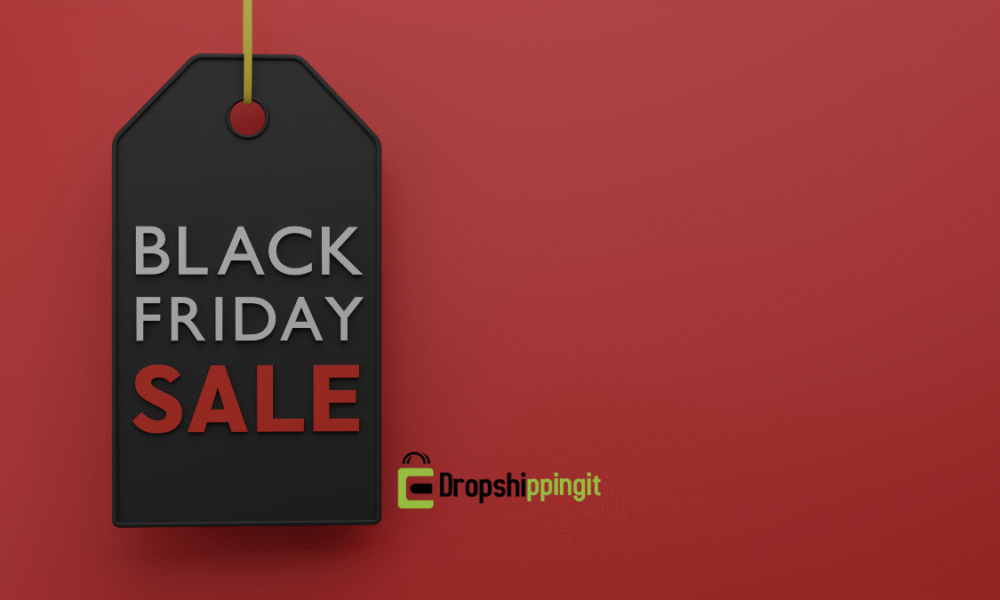If you are looking for Shopify website builders, you’re obviously trying to…
Who Is Shopify’s Biggest Competitor? (Revealed)

Shopify is a platform used by many businesses to create their online storefront, but it has many competitors.
This article will compare Shopify to its four biggest rivals: Bigcommerce, Magento, Wix, and Volusion. We’ll discuss the pros and cons of each platform, so you can decide which is best for your business.
These platforms offer similar features, but each has its strengths and weaknesses.
As a result, business owners must research before choosing a platform to build their online store.
Magento is another popular ecommerce platform. It’s open source, so you can customize it to fit your needs.
However, this can also be a downside, as it can be challenging to use.
Volusion is the final major competitor for Shopify. It’s simpler than Magento and Bigcommerce, making it a good choice for businesses that are just starting.
However, it doesn’t have as many features as the other two platforms.
So, which platform is best for you? It depends on your needs.
For example, if you’re looking for a simple, easy-to-use platform, Volusion might be the best choice.
Bigcommerce or Magento could be better options if you need more customization and features.
Ultimately, the best platform for your business will depend on your specific needs.
Shopify’s biggest competitor is Bigcommerce. Both platforms offer similar features, but Bigcommerce is slightly more expensive.
It also has a more extensive user base, which can be helpful if you’re looking to expand your business.
Magento is another popular ecommerce platform. It’s open source, so you can customize it to fit your needs.
However, this can also be a downside, as it can be difficult to use. Volusion is the final major competitor for Shopify.
It’s simpler than Magento and Bigcommerce, making it a good choice for businesses that are just starting. However, it doesn’t have as many features as the other two platforms.
Shopify vs. Bigcommerce
Bigcommerce is one of the biggest names in e-commerce, and for a good reason. It’s a robust platform that offers everything businesses need to succeed online. However, it’s also more expensive than Shopify and doesn’t have as many features.
Shopify is an excellent option for businesses looking for an all-in-one solution. It’s less expensive than Bigcommerce and offers many features businesses need to succeed online. However, it doesn’t have as many customization options as Bigcommerce.
Get started with Shopify dropshipping.
Shopify has the apps and tools to connect you to reliable dropshipping suppliers. Jumpstart your business with Shopify Today.
Try Shopify free for 14 days; no credit card is required.

In the end, it depends on what your business needs. Bigcommerce is the better choice if you need many customization options. If you’re looking for a less expensive option with all the features you need, Shopify is a great choice.
Bigcommerce features are :
-A/B testing
- Advanced shipping
- Automatic tax calculations
- Built-in blog
- Customer groups
- Dropshipping
- Gift cards
- Multi-language support
- Product reviews
- Real-time shipping quotes
Shopify features are:
- Abandoned cart recovery
- Analytics
- App store
- Blog
- Discount codes
- eCommerce University
- Facebook shop
- Fraud analysis
- Google Shopping
- Multilingual support
- Point of sale
- 24/7 support
Shopify is less expensive and has many features businesses need to succeed online. Does not have as many customization options as Bigcommerce.
Regarding pricing, Shopify’s basic plan is $29 per month, while Bigcommerce’s starter plan is $29.95.
Shopify also has a professional plan at $79 per month and a Shopify plus plan for businesses needing more customization and support, priced at $2000 per month.
On the other hand, big commerce has a plus plan priced at $79.95 per month, a pro plan at $249.95 per month, and an enterprise plan priced the same as Shopify.
So in terms of pricing, Shopify is cheaper if you are starting or need basic features.
Shopify vs. Magento
Magento is another popular ecommerce platform, but it’s aimed at larger businesses. It’s more expensive and complex than Shopify but offers many flexibilities and customization options. If you’re looking for an ecommerce platform that can grow with your business, Magento is worth considering. However, it may be overkill for smaller companies.
Magento features include:
- Open-source platform
- Customizable design
- Flexible product display options
- Advanced marketing and SEO tools
- Scalable for large businesses
Shopify, on the other hand, is much simpler to use. It’s an excellent choice for small businesses that don’t need all the bells and whistles of Magento. Shopify is also less expensive, making it more affordable for companies on a budget.
Shopify features include:
- Easy-to-use platform
- Affordable plans
- Hundreds of themes and apps
- Excellent customer support
- Suitable for small to medium businesses
So, who is Shopify’s biggest competitor? Magento is a strong contender, but Shopify holds its own in the ecommerce world.
Thanks to its ease of use and affordability, Shopify is an excellent platform for small businesses.
If you’re looking for an ecommerce solution that can grow with your business, Magento is worth considering. But if you’re just getting started in the ecommerce world, Shopify is a great option.
Do you need help choosing the right ecommerce platform for your business? Sign up for Shopify’s 14 days free trial today.
Shopify vs. Volusion
Volusion is a less well-known platform, but it’s still a solid option for businesses. It’s less expensive than Shopify and Bigcommerce, but it doesn’t have as many features.
Shopify is a better option for businesses looking for a more comprehensive platform.
The Volusion e-commerce platform has been around since 1999. Shopify was founded in 2004
Shopify is a public company, while Volusion is a private company.
Volusion offers four pricing plans: Starter ($35/month), Professional ($79/month), Business ($299/month), and Prime (?/month).

Shopify also offers four pricing plans: Shopify Lite ($9/month), Basic Shopify ($29/month), Shopify ($79/month), and Advanced Shopify ($299/month).
Volusion’s main features include a customizable product catalog, a built-in shopping cart, payment processing, SEO tools, promotional tools, and 24/7 customer support.
Shopify’s main features include a customizable product catalog, a built-in shopping cart, payment processing, SEO tools, promotional tools, and 24/7 customer support.
Volusion features include:
-A/B Testing
-Advanced Reporting
-Coupons & Discounts
-Gift Cards
-Product Bundles
-Real-time Shipping Rates
-Recurring Orders
-Segmentation
-Social Media Integration
Shopify features include:
-Abandoned Cart Recovery
-Analytics & Reporting
-Blogging
-Facebook Shop Integration
-Gift Cards
-Multi-Language Support
-Point of Sale (POS)
-Product Reviews
-Shipping & Delivery Management
-Third-Party App Integration
Volusion is a good option for businesses looking for an affordable platform with plenty of features. Shopify is a better option for businesses that need a more comprehensive platform.
Shopify is also a better option for businesses looking to scale their operations. Shopify is the clear winner when it comes to Shopify vs. Volusion.
However, if you’re on a tight budget, Volusion might be a better choice.
But ultimately, it’s up to you to decide which platform is best for your business.
Shopify Vs. Wix
Shopify vs. Wix Shopify and Wix are two of the most popular ecommerce platforms today.
Shopify is a fully-fledged ecommerce platform that offers everything you need to create and run an online store.
On the other hand, Wix is a website builder offering ecommerce functionality. Both platforms have pros and cons, so choosing the one that’s right for you is crucial.
Here’s a quick overview of Shopify vs. Wix:
Shopify Pros:
– Fully-featured ecommerce platform
– Powerful and easy-to-use
– Excellent customer support
– Lots of features and integrations
Shopify Cons:
– Limited design customization
– Requires some technical knowledge
– Can be expensive
Wix Pros:
– Easy-to-use website builder
– No need for technical knowledge
– More affordable than Shopify
– Good selection of ecommerce features
Wix Cons:
– Limited design customization
– Not as powerful as Shopify
– Poor customer support
So, who is Shopify’s biggest competitor? It depends on your needs. So if you’re looking for a fully-featured ecommerce platform, then Shopify is a clear choice.
However, if you’re looking for an easy-to-use website builder with some ecommerce functionality, then Wix may be a better option, but still, Shopify tops the list.
Conclusion
Shopify is a well-known eCommerce platform enabling businesses to create online stores. However, it’s not the only option out there.
Several other platforms offer similar features and functionality. For example, one of Shopify’s biggest competitors is Wix.
Like Shopify, Wix enables businesses to create their online stores, but there are a few key differences between the two platforms.
For one, Wix is a bit more user-friendly and beginner-friendly than Shopify.
Additionally, Wix offers a more robust set of features than Shopify, making it a better option for businesses that need a little more flexibility and customization.
So, which platform is right for you? It depends on your needs and preferences.
For example, if you’re looking for a user-friendly platform with a good selection of features, Wix may be a better option.
However, if you need a more powerful and flexible platform, Shopify may be a better choice.
But ultimately, it’s up to you to decide which platform is best for your business.
Start Shopify For Only

Try Shopify free for 3 days, no credit card is required. By entering your email, you agree to receive marketing emails from Shopify.




Comments (0)